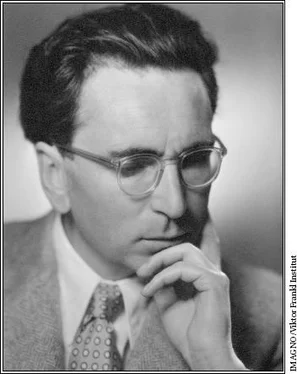Logotherapy regards its assignment as that of assisting the patient to find meaning in his life. Inasmuch as logotherapy makes him aware of the hidden logos of his existence, it is an analytical process. To this extent, logotherapy resembles psychoanalysis. However, in logotherapy’s attempt to make something conscious again it does not restrict its activity to instinctual facts within the individual’s unconscious but also cares for existential realities, such as the potential meaning of his existence to be fulfilled as well as his will to meaning. Any analysis, however, even when it refrains from including the noölogical dimension in its therapeutic process, tries to make the patient aware of what he actually longs for in the depth of his being. Logotherapy deviates from psychoanalysis insofar as it considers man a being whose main concern consists in fulfilling a meaning, rather than in the mere gratification and satisfaction of drives and instincts, or in merely reconciling the conflicting claims of id, ego and superego, or in the mere adaptation and adjustment to society and environment.
Noö-Dynamics
To be sure, man’s search for meaning may arouse inner tension rather than inner equilibrium. However, precisely such tension is an indispensable prerequisite of mental health. There is nothing in the world, I venture to say, that would so effectively help one to survive even the worst conditions as the knowledge that there is a meaning in one’s life. There is much wisdom in the words of Nietzsche: “He who has a why to live for can bear almost any how .” I can see in these words a motto which holds true for any psychotherapy. In the Nazi concentration camps, one could have witnessed that those who knew that there was a task waiting for them to fulfill were most apt to survive. The same conclusion has since been reached by other authors of books on concentration camps, and also by psychiatric investigations into Japanese, North Korean and North Vietnamese prisoner-of-war camps.
As for myself, when I was taken to the concentration camp of Auschwitz, a manuscript of mine ready for publication was confiscated. 1Certainly, my deep desire to write this manuscript anew helped me to survive the rigors of the camps I was in. For instance, when in a camp in Bavaria I fell ill with typhus fever, I jotted down on little scraps of paper many notes intended to enable me to rewrite the manuscript, should I live to the day of liberation. I am sure that this reconstruction of my lost manuscript in the dark barracks of a Bavarian concentration camp assisted me in overcoming the danger of cardiovascular collapse.
Thus it can be seen that mental health is based on a certain degree of tension, the tension between what one has already achieved and what one still ought to accomplish, or the gap between what one is and what one should become. Such a tension is inherent in the human being and therefore is indispensable to mental well-being. We should not, then, be hesitant about challenging man with a potential meaning for him to fulfill. It is only thus that we evoke his will to meaning from its state of latency. I consider it a dangerous misconception of mental hygiene to assume that what man needs in the first place is equilibrium or, as it is called in biology, “homeostasis,” i.e., a tensionless state. What man actually needs is not a tensionless state but rather the striving and struggling for a worthwhile goal, a freely chosen task. What he needs is not the discharge of tension at any cost but the call of a potential meaning waiting to be fulfilled by him. What man needs is not homeostasis but what I call “noö- dynamics,” i.e., the existential dynamics in a polar field of tension where one pole is represented by a meaning that is to be fulfilled and the other pole by the man who has to fulfill it. And one should not think that this holds true only for normal conditions; in neurotic individuals, it is even more valid. If architects want to strengthen a decrepit arch, they increase the load which is laid upon it, for thereby the parts are joined more firmly together. So if therapists wish to foster their patients’ mental health, they should not be afraid to create a sound amount of tension through a reorientation toward the meaning of one’s life.
Having shown the beneficial impact of meaning orientation, I turn to the detrimental influence of that feeling of which so many patients complain today, namely, the feeling of the total and ultimate meaninglessness of their lives. They lack the awareness of a meaning worth living for. They are haunted by the experience of their inner emptiness, a void within themselves; they are caught in that situation which I have called the “existential vacuum.”
The Existential Vacuum
The existential vacuum is a widespread phenomenon of the twentieth century. This is understandable; it may be due to a twofold loss which man has had to undergo since he became a truly human being. At the beginning of human history, man lost some of the basic animal instincts in which an animal’s behavior is imbedded and by which it is secured. Such security, like Paradise, is closed to man forever; man has to make choices. In addition to this, however, man has suffered another loss in his more recent development inasmuch as the traditions which buttressed his behavior are now rapidly diminishing. No instinct tells him what he has to do, and no tradition tells him what he ought to do; sometimes he does not even know what he wishes to do. Instead, he either wishes to do what other people do (conformism) or he does what other people wish him to do (totalitarianism).
A statistical survey recently revealed that among my European students, 25 percent showed a more-or-less marked degree of existential vacuum. Among my American students it was not 25 but 60 percent.
The existential vacuum manifests itself mainly in a state of boredom. Now we can understand Schopenhauer when he said that mankind was apparently doomed to vacillate eternally between the two extremes of distress and boredom. In actual fact, boredom is now causing, and certainly bringing to psychiatrists, more problems to solve than distress. And these problems are growing increasingly crucial, for progressive automation will probably lead to an enormous increase in the leisure hours available to the average worker. The pity of it is that many of these will not know what to do with all their newly acquired free time.
Let us consider, for instance, “Sunday neurosis,” that kind of depression which afflicts people who become aware of the lack of content in their lives when the rush of the busy week is over and the void within themselves becomes manifest. Not a few cases of suicide can be traced back to this existential vacuum. Such widespread phenomena as depression, aggression and addiction are not understandable unless we recognize the existential vacuum underlying them. This is also true of the crises of pensioners and aging people.
Moreover, there are various masks and guises under which the existential vacuum appears. Sometimes the frustrated will to meaning is vicariously compensated for by a will to power, including the most primitive form of the will to power, the will to money. In other cases, the place of frustrated will to meaning is taken by the will to pleasure. That is why existential frustration often eventuates in sexual compensation. We can observe in such cases that the sexual libido becomes rampant in the existential vacuum.
An analogous event occurs in neurotic cases. There are certain types of feedback mechanisms and vicious-circle formations which I will touch upon later. One can observe again and again, however, that this symptomatology has invaded an existential vacuum wherein it then continues to flourish. In such patients, what we have to deal with is not a noögenic neurosis. However, we will never succeed in having the patient overcome his condition if we have not supplemented the psychotherapeutic treatment with logotherapy. For by filling the existential vacuum, the patient will be prevented from suffering further relapses. Therefore, logotherapy is indicated not only in noögenic cases, as pointed out above, but also in psychogenic cases, and sometimes even the somatogenic (pseudo-) neuroses. Viewed in this light, a statement once made by Magda B. Arnold is justified: “Every therapy must in some way, no matter how restricted, also be logotherapy.” 2
Читать дальше












